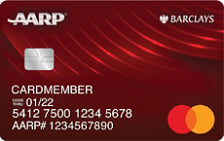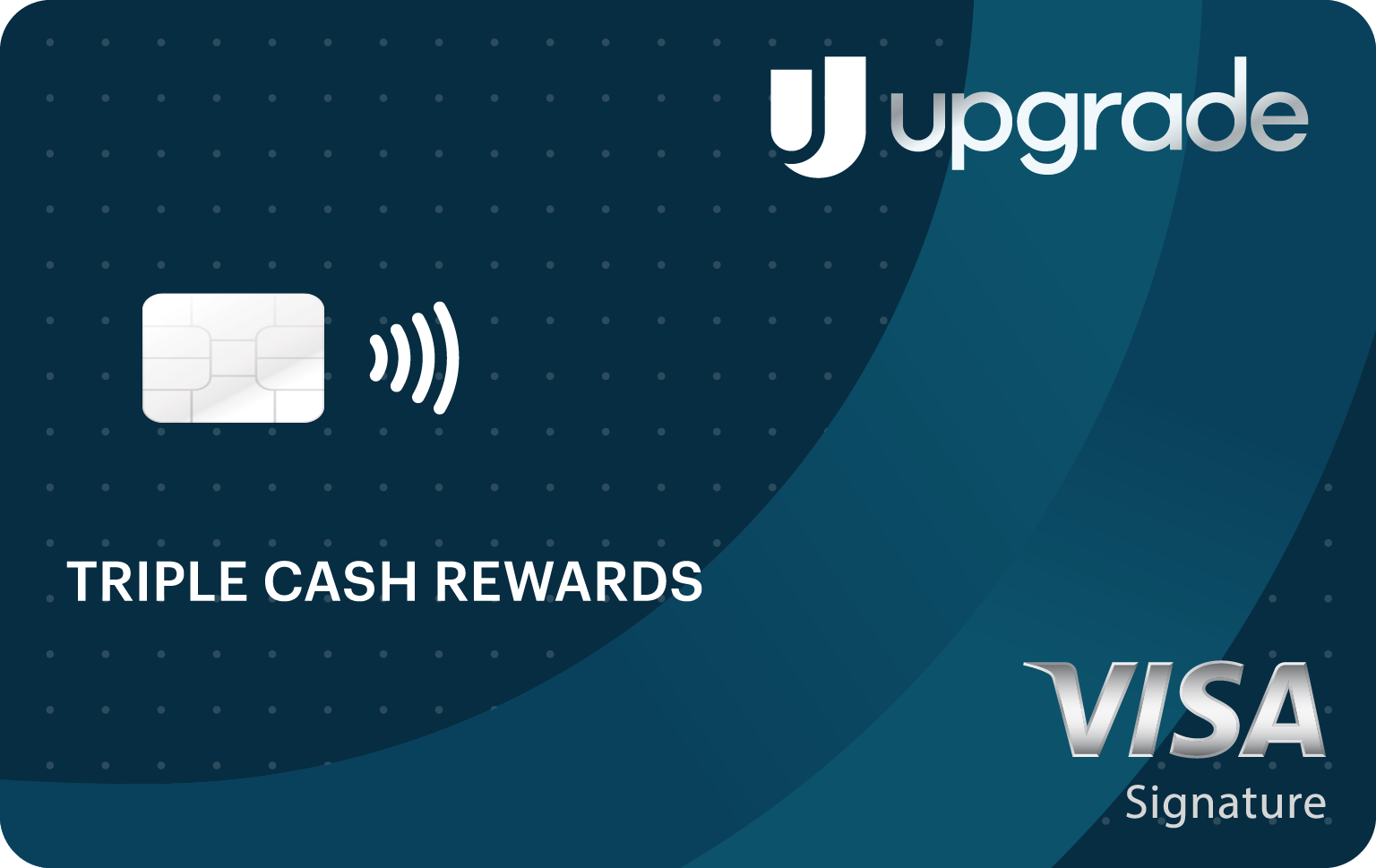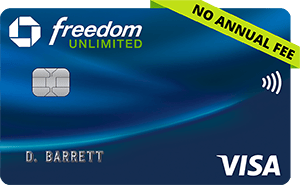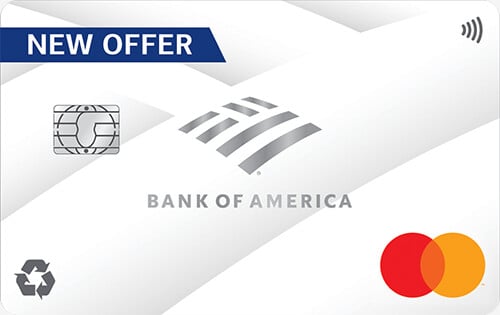Best Credit Cards for Medical Expenses
Such bills can be costly, and a credit card isn't always the best answer. But some do offer rewards or benefits that can help defray expenses, if you can avoid carrying a balance.

Many or all of the products on this page are from partners who compensate us when you click to or take an action on their website, but this does not influence our evaluations or ratings. Our opinions are our own.
Planned or unexpected, medical-related expenses can be costly and cause financial strain. As of June 2023, 15 million Americans have medical bills on their credit reports and collectively more than $49 billion in unpaid medical bills in collections, according to research from the Consumer Financial Protection Bureau.
It’s generally not advisable to use a credit card for medical expenses unless absolutely necessary. Doing so could end up costing thousands of dollars in interest and potentially send you into debt.
But if you must charge medical expenses on a credit card, there are cards that offer rewards and benefits for medical-related purchases — whether it's paying for your prescriptions or going to a health care provider.
Here are the best credit cards for medical purchases.
🤓 Nerdy Tip
Medical expenses are one thing, but other spending may fall within the category of general "wellness" — things like spa visits, gym and fitness club membership, even certain foods. For those kinds of purchases, see our best credit cards for wellness. And if your idea of wellness includes sports and physical activity, consider our best credit cards for sports fans and athletes. AARP® Essential Rewards Mastercard® from Barclays
Our pick for: Varied medical expenses
Annual fee: $0.
Key medical rewards and benefits:
- 3% cash back at gas stations and drugstores (excluding Target and Walmart).
- 2% cash back on medical expenses.
Why we like it
The AARP® Essential Rewards Mastercard® from Barclays offers valuable medical-related rewards that can be beneficial for AARP members and nonmembers, too. Cardholders earn 2% cash back for medical expenses, which includes a wide and inclusive breadth of services and products such as dentists, orthodontists, osteopathic physicians, chiropractors, optometrists, opticians, optical goods and eyeglasses, hospitals, medical and dental laboratories, hearing aids, ambulance services, orthopedic goods, prosthetic devices, nursing and personal care facilities, health practitioners and more.
Additionally, the card earns an even higher rate of 3% cash back for drugstore purchases, excluding Target and Walmart. This means that if you were to purchase over-the-counter medication at CVS or Walgreens, for example, you would earn the card’s bonus cash back rate. Note that a purchase or service’s merchant category code, or MCC, will determine if your purchase will be categorized as a drugstore and earn the card’s 3% back. Purchases made at pharmacies in grocery stores, wholesale stores or discount stores aren't eligible to earn this cash back rate for drugstore spending.
» 5 THINGS TO KNOW: AARP® Essential Rewards Mastercard® from Barclays
🤓 Nerdy Tip
There are cards, like the Wells Fargo Active Cash® Card or the Citi Double Cash® Card, that earn 2% cash back on all purchases. While these cards don’t earn rewards specifically for medical expenses, they reward holders regardless of what you buy — whether it's groceries or a medical-related purchase. Upgrade Triple Cash Rewards Visa®
Our pick for: Paying down medical debt
Annual fee: $0.
Key medical rewards and benefits: Earn 3% cash back on home, auto and health purchases.
Why we like it
In addition to home and auto purchases, holders of the Upgrade Triple Cash Rewards Visa® will earn 3% cash back for health-related spending. This includes sports and beauty related purchases and also things like hospital visits. Additional medical-related spending that would earn the card’s 3% back includes services and products like hearing aids, medical and dental laboratories, health practitioners, nursing and personal care facilities, optometrists and ophthalmologists, prosthetic devices and more.
Plus, the card has a unique benefit: If you end up carrying a balance on the card, you’ll be able to pay it down at a fixed interest rate within a set repayment period, based on what you qualify for. This can lessen some financial strain and prevent you from accumulating debt faster, as you might with a regular credit card.
Other contender: If you’ve accrued medical debt on a credit card, cards with introductory balance transfer offers can help you pay down that debt interest free. The $0-annual-fee Wells Fargo Reflect® Card for example, comes with a lengthy 0% APR period for both purchases and balance transfers: It features a 0% intro APR for 21 months from account opening on purchases and qualifying balance transfers, and then the ongoing APR of 17.49%, 23.99%, or 28.24% Variable APR. Note that there is a balance transfer fee of $5 or 5% (whichever is greater).
» FULL REVIEW: Upgrade Triple Cash Rewards Visa®
See more from Upgrade
Upgrade Select Visa®:
Credit Lines feature Annual Percentage Rates (APRs) of 14.99% - 29.99% based on creditworthiness. The lowest rates require Autopay and the majority of line amounts will be $15,000 or under. For example, a $1,000 card purchase with a 36 month term and a 19.99% APR has a monthly payment of $37.55. Optional cash transfers to your bank account and balance transfers are subject to a fee of up to 5% of each draw or transfer. Foreign transactions are subject to a fee of up to 3% per transaction. ATM withdrawal fees may apply. If incurred, these fees will increase your finance charge and APR. A late fee of up to $29 per late payment may apply. Your rate, line amount, and default term depend on maintaining a qualifying credit score, your credit usage history, requested amount, and other factors. The Upgrade Card is unique in that it allows you to obtain a series of closed-end loans which you may access through transactions such as card purchases up to your approved amount. As you repay your balance, additional credit may become available to you up to an approved amount subject to meeting our credit requirements, but your line will not replenish automatically.
Upgrade Life Rewards Card:
*By paying off your statement balance in full by the EarlyPay payment date, which is two calendar days after your statement closing date, you will avoid daily interest on any new transactions until the following EarlyPay payment date. Refer to your Personal Credit Line Agreement for EarlyPay terms and information. If the balance is not paid in full by the EarlyPay payment date, daily interest will begin to accrue after the Early Pay payment date for past and new transactions. To maintain good standing on your account, you must make at least the required monthly payment by the monthly payment due date, which is 22 calendar days after the statement closing date. You may pay down your full balance at any time to stop further interest charges.
Upgrade Cash Rewards Visa®, Upgrade Triple Cash Rewards Visa®, Upgrade Life Rewards Card:
Credit Lines feature Annual Percentage Rates (APRs) of 14.99% - 29.99% based on creditworthiness. The lowest rates require Autopay and the majority of line amounts will be $15,000 or under. For example, a $1,000 card purchase with a 36 month term and a 19.99% APR has a monthly payment of $37.55. Optional cash transfers to your bank account and balance transfers are subject to a fee of up to 5% of each draw or transfer. Foreign transactions are subject to a fee of up to 3% per transaction. ATM withdrawal fees may apply. If incurred, these fees will increase your finance charge and APR. A late fee of up to $29 per late payment may apply. Your rate, line amount, and default term depend on maintaining a qualifying credit score, your credit usage history, requested amount, and other factors. The Upgrade Card is unique in that it allows you to obtain a series of closed-end loans which you may access through transactions such as card purchases up to your approved amount. As you repay your balance, additional credit may become available to you up to an approved amount subject to meeting our credit requirements, but your line will not replenish automatically.
All Upgrade cards:
To qualify for the welcome bonus, you must open and fund a new Rewards Checking Preferred account through Upgrade and make 3 qualifying debit card transactions from your Rewards Checking Preferred account within 60 days of the date the Rewards Checking Preferred account is opened. If you have previously opened a checking account through Upgrade or do not open a Rewards Checking Preferred account as part of this application process, you are not eligible for this welcome bonus offer. Your Upgrade Card and Rewards Checking Preferred account must be open and in good standing to receive a bonus. To qualify, debit card transactions must have settled and exclude ATM transactions. Please refer to the applicable Upgrade Visa® Debit Card Agreement and Disclosures for more information. Welcome bonus offers cannot be combined, substituted, or applied retroactively. The bonus will be applied to your Rewards Checking Preferred account as a one-time payout credit within 60 days after meeting the conditions. This one-time bonus is available through this Upgrade Card offer and may not be available for other Upgrade Card offers.
Citi Custom Cash® Card
Our pick for: Flexibility
Annual fee: $0.
Key medical rewards and benefits: 5% cash back on up to $500 spent in your highest spending category per billing cycle (from a list of eligible options, one of which is drugstores) and 1% back on all other category spending.
Why we like it
Rotating bonus category cards usually require some work to keep track of. But the Citi Custom Cash® Card makes it easier for cardholders to stay on top of bonus categories. That’s because it earns 5% cash back in your top eligible spending category each billing cycle, which is automatically adjusted based on your spending that month. And because drugstores are one of the card’s 10 fixed bonus categories, you’ll earn lucrative rewards when you use your card at those stores.
For the Citi Custom Cash® Card, drugstore spending includes purchases made at pharmacies in grocery stores, superstores, wholesale and warehouse clubs — as long as the purchase’s MCC is "drug store" or "pharmacy."
Because of the card’s flexibility, holders aren't bound to spending just one way to earn 5% cash back. For example, if you end up spending heavily at drugstores for medical expenses based on your needs one month, but your spending leans more toward groceries the next billing cycle, your bonus category will automatically adjust and you’ll continue to earn elevated rewards (until you hit the $500 spending cap each billing cycle).
» FULL REVIEW: Citi Custom Cash® Card
Chase Freedom Unlimited®
Our pick for: Drugstores
Annual fee: $0.
Key medical rewards and benefits: 3% cash back on drugstore purchases.
Why we like it
In addition to rewards for travel and restaurant purchases, the Chase Freedom Unlimited® earns a solid cash back rate for spending at drugstores — which can make it a go-to card for pharmacy-related spending done at such stores. Note that purchases made at a grocery, warehouse and discount store pharmacies aren't eligible to earn this cash back rate.
Plus, the card earns 1.5% back on spending outside the bonus category. Although this isn't as high as what some flat rate cards on the market offer, it is higher than what most tiered rewards cards offer for that spending.
New account holders can also take advantage of the card’s generous sign-up bonus: Earn a $200 Bonus after you spend $500 on purchases in your first 3 months from account opening.
Other contender: If you’re a rewards maximizer who is able to keep track of rotating bonus categories, consider the Chase Freedom Flex®. It too earns 3% cash back on drugstore purchases in addition to earning rewards for dining and travel-related spending. However, unlike the Chase Freedom Unlimited®, it earns 5% cash back in quarterly rotating categories that you have to activate (up to $1,500 in combined spending per quarter) — which has included drugstores in the past. This means that you’ll be able to take advantage of the card’s ongoing 3% back for drugstores in addition to potentially doubling up on the category.
» FULL REVIEW: Chase Freedom Unlimited®
The myWalgreens Mastercard
Our pick for: Walgreens
Annual fee: $0
Key medical rewards and benefits:
- $25 in Walgreens Cash rewards when you make your first purchase within the first 45 days.
- 10% back on eligible Walgreens-branded items in stores, online or through the Walgreens app.
- 5% back on all other purchases in Walgreens and Duane Reade stores, online and through the Walgreens app, including pharmacy purchases.
- 3% back on non-Walgreens groceries and health and wellness purchases.
- 1% back on all other spending.
Why we like it
If Walgreens is your go-to drugstore, you can earn valuable rewards with the myWalgreens Mastercard — for both in-person and online purchases. Walgreens-branded items will get you the most in rewards, but you’ll still earn a lucrative rate on other purchases, including pharmacy-items, at the store as well as at Duane Reade stores.
Additionally, the Mastercard earns rewards for non-Walgreens health and wellness purchases. Items and services that qualify under this category will be determined by the associated MCC.
Walgreens Cash rewards earned with the card can be redeemed at checkout as a discount on in-store, online or app purchases.
Note that some pharmacy items purchased at Walgreens stores in Arkansas, New Jersey or New York may not be eligible for cash rewards.
🤓 Nerdy Tip
Walgreens also offers the myWalgreens card, which comes with the same benefits as the Mastercard version save for cash back on non-Walgreens spending. The card can be used in Walgreens and Duane Reade stores, online at Walgreens.com and through the Walgreens app only. An applicant’s credit score will determine which card they are approved for. Those who aren't approved for the myWalgreens Mastercard will automatically be considered for the myWalgreens card. Alternative options
The CareCredit Card
The $0-annual-fee CareCredit cards offer special financing for out-of-pocket medical expenses that aren't otherwise covered by insurance. There are two versions:
- The CareCredit Rewards Mastercard, which earns 2 points per $1 spent in the CareCredit network, on eligible health and wellness purchases, and at grocery and pet stores. All other purchases earn 1 point per $1. This card can be used pretty much anywhere, but you’ll only be considered for it if you apply online.
- The CareCredit credit card, which doesn’t earn rewards and is only accepted by wellness and health care providers enrolled in the program, which includes over 270,000 providers across the country. If you apply over the phone or at a provider, you’ll only be able to get this version of the card.
The cards offer interest-free periods of six, 12, 18 and 24 months, on purchases of $200 or more. If you pay off your balance before the allotted interest-free window closes, you won’t be charged any interest. However, the card’s promotional offer is a deferred interest offer, which means that interest isn't waived, but rather, put off until later. So if you fail to pay the amount you owe before the promotional period ends, you’ll be charged interest on the original amount borrowed, not just on the remaining balance — which can be very expensive.
To this end, this option should be used only as a last resort. And if you find yourself in a medical emergency that necessitates the use of a CareCredit card, it’s important to come up with a plan to pay the debt off within the promotional window.
The Lane Healthcare Spending Card
If you don’t have an HSA (or a substantial amount of money in one), the Lane Healthcare Spending card can help you pay down large medical expenses not covered by insurance.
The card offers repayment plans — 12 months for qualifying hospital bills, and one or four months for other non-hospital health care expenses — during which you won’t be charged any interest. However, if you don’t pay back what you owe within those repayment periods, you’ll be charged a 5% loan origination fee and periodic finance fees that can make carrying a balance with the card costly.
For holders who do have an HSA, it allows you to link your account to pay for health-related expenses with tax-free dollars, and also finance those health-related expenses over time with no-interest installment plans.
General 0% APR cards
If you have an unexpected medical expense that warrants financing, consider opting for a 0% APR card that comes with a long interest-free period. Such cards come with waived interest offers, which means you won't be charged any interest during the promotional period, after which you’ll only accrue interest on any remaining balance left over.
For example, the BankAmericard® credit card features a lengthy interest-free window. Holders get a 0% Intro APR for 21 billing cycles for purchases, and for any balance transfers made in the first 60 days. After the Intro APR offer ends, a Variable APR that’s currently 14.99%-25.99% will apply.
For other potential alternatives, visit NerdWallet's roundup of best credit card offers.
Article sources
NerdWallet writers are subject matter authorities who use primary,
trustworthy sources to inform their work, including peer-reviewed
studies, government websites, academic research and interviews with
industry experts. All content is fact-checked for accuracy, timeliness
and relevance. You can learn more about NerdWallet's high
standards for journalism by reading our
editorial guidelines.
Find the right credit card for you.
Whether you want to pay less interest or earn more rewards, the right card's out there. Just answer a few questions and we'll narrow the search for you.












